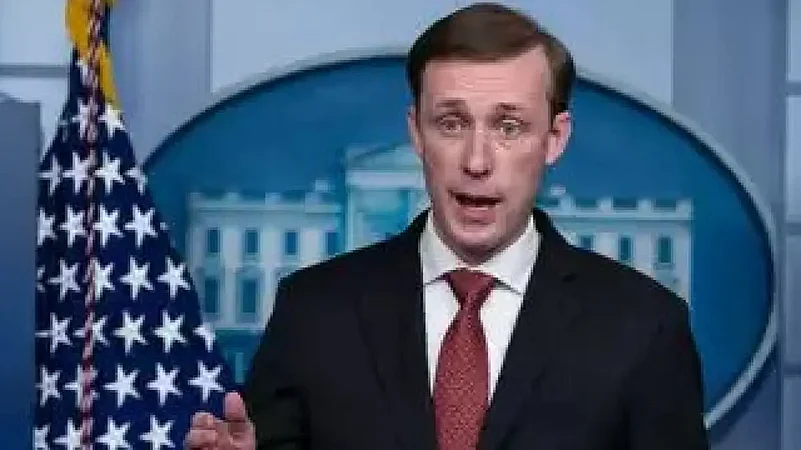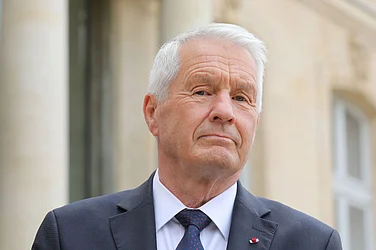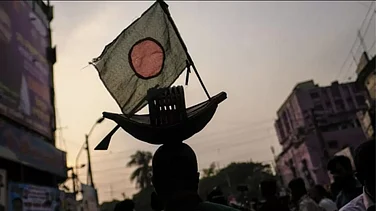A US official said Russia asked China for military equipment to use in its invasion of Ukraine, a request that heightened tensions about the ongoing war ahead of a Monday meeting in Rome between top aides for the US and Chinese governments.
In advance of the talks, White House national security adviser Jake Sullivan bluntly warned China to avoid helping Russia evade punishment from global sanctions that have hammered the Russian economy. “We will not allow that to go forward,” he said.
The prospect of China offering Russia financial help is one of several concerns for President Joe Biden. A US official, speaking on condition of anonymity to discuss sensitive matters, said that in recent days, Russia had requested support from China, including military equipment, to press forward in its ongoing war with Ukraine. The official did not provide details on the scope of the request. The request was first reported by the Financial Times and The Washington Post.
The Biden administration is also accusing China of spreading Russian disinformation that could be a pretext for Russian President Vladimir Putin's forces to attack Ukraine with chemical or biological weapons.
Russia's invasion of Ukraine has put China in a delicate spot with two of its biggest trading partners: the US and European Union. China needs access to those markets, yet it also has shown support for Moscow, joining with Russia in declaring a friendship with “no limits.”
In his talks with senior Chinese foreign policy adviser Yang Jiechi, Sullivan will indeed be looking for limits in what Beijing will do for Moscow.
“I'm not going to sit here publicly and brandish threats," he told CNN in a round of Sunday news show interviews. “But what I will tell you is we are communicating directly and privately to Beijing that there absolutely will be consequences” if China helps Russia “backfill” its losses from the sanctions.
“We will not allow that to go forward and allow there to be a lifeline to Russia from these economic sanctions from any country anywhere in the world,” he said.
In brief comments on the talks, Chinese Foreign Ministry spokesperson Zhao Lijian did not mention Ukraine, saying that the “key issue of this meeting is to implement the important consensus reached by the Chinese and US heads of state in their virtual summit in November last year."
“They will exchange views on China-US relations and international and regional issues of common concern," Zhao said in comments posted on the ministry's website late Sunday.
The White House said the talks will focus on the direct impact of Russia's war against Ukraine on regional and global security.
Biden administration officials say Beijing is spreading false Russian claims that Ukraine was running chemical and biological weapons labs with US support. They say China is effectively providing cover if Russia moves ahead with a biological or chemical weapons attack on Ukrainians.
When Russia starts accusing other countries of preparing to launch biological or chemical attacks, Sullivan told NBC's “Meet the Press,” “it's a good tell that they may be on the cusp of doing it themselves.”
Pentagon spokesman John Kirby, on ABC's “This Week,” said “we haven't seen anything that indicates some sort of imminent chemical or biological attack right now, but we're watching this very, very closely.”
The striking US accusations about Russian disinformation and Chinese complicity came after Russian Foreign Ministry spokeswoman Maria Zakharova alleged with no evidence that the US was financing Ukrainian chemical and biological weapons labs.
The Russian claim was echoed by Chinese foreign ministry spokesman Zhao Lijian, who claimed there were 26 bio-labs and related facilities in “which the US Department of Defense has absolute control.” The United Nations has said it has received no information backing up such accusations.
White House press secretary Jen Psaki called the claims “preposterous." There is growing concern inside the White House that China is aligning itself with Russia on the Ukraine war in hopes it will advance Beijing's “vision of the world order” in the long term, according to a person familiar with administration thinking. The person was not authorized to comment publicly and spoke on the condition of anonymity.
China has been one of few countries to avoid criticising the Russians for its invasion of Ukraine. China's leader Xi Jinping hosted Putin for the opening of the Winter Olympics in Beijing, just three weeks before Russia invaded on February 24.
During Putin's visit, the two leaders issued a 5,000-word statement declaring limitless friendship.
The Chinese abstained on UN votes censuring Russia and has criticized economic sanctions against Moscow. It has expressed its support for peace talks and offered its services as a mediator, despite questions about its neutrality and scant experience mediating international conflict.
But questions remain over how far Beijing will go to alienate the West and put its own economy at risk.
Chinese officials have said Washington shouldn't be able to complain about Russia's actions because the US invaded Iraq under false pretenses. The US claimed to have evidence Saddam Hussein was stockpiling weapons of mass destruction though none was ever found.
Sullivan is also to meet Luigi Mattiolo, diplomatic adviser to Italian Prime Minister Mario Draghi, while in Rome.





















